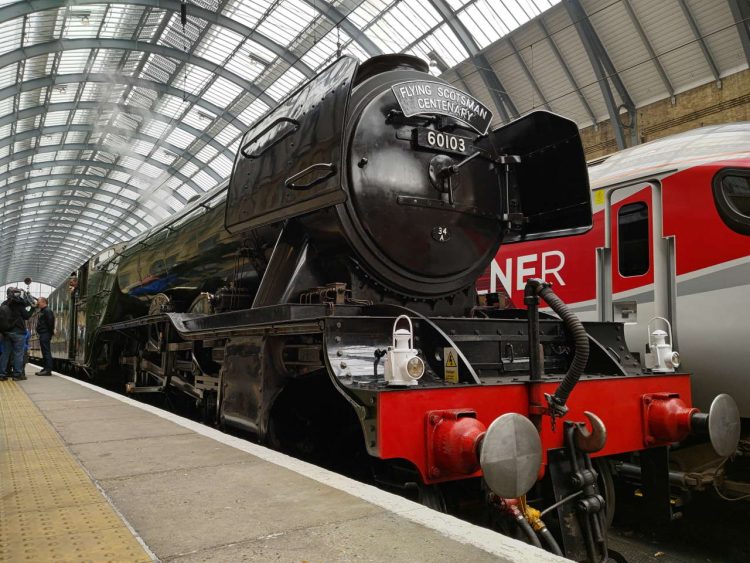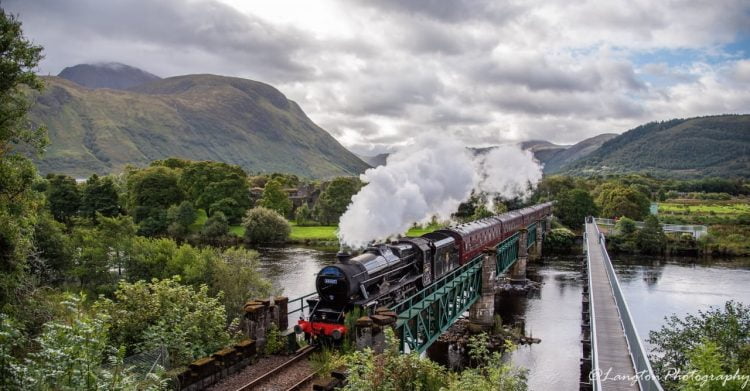West Coast Railways: Business would be unviable if exemption is …
West Coast Railways[1] is at The High Court of Justice aiming to overturn the Office of Rail and Road's decision to revoke their exemption to operate heritage steam locomotives and carriages on the mainline.
The regulator has insisted that WCR install all trains with Central Door Locking, but WCR says that it has operated without CDL since 2003, and has instead used an alternative method.
This system is on all WCR carriages, which are then operated behind famous locomotives, such as the Flying Scotsman, and on the ever popular Jacobite summer steam services.
At WCR, trained stewards are responsible for the four doors on each carriage, they bolt the doors through Secondary Door Locks and monitor them on the journey.
 Flying Scotsman at Kings Cross // Credit: RailAdvent
Flying Scotsman at Kings Cross // Credit: RailAdvent
On each passenger service there is:
- At least one steward per carriage to operate doors and monitor droplight windows.
- A train manager, who delivers a safety briefing for stewards before dispatch of every service.
- A guard, who delivers a safety briefing for passengers at the start of each journey, and monitors procedures through the rest of the trip.
WCR's case is that they have had an exemption since 2005 and yet says that the same regulations, Rail Safety Regulations 1999, that are being used to force the operator to install Central Door Locking.
West Coast says that installing Central Door Locking would cost around £7m, which, according to the operator, would wipe out any profits for close to a decade – and would deem it unviable for business.
WCR also says that should the exemption be revoked, it would lead to a £50m loss in economic value.
 Credit: Langton Photography
Credit: Langton Photography
James Shuttleworth, Commercial Manager, WCR, said:
“This country was the birthplace of railways and I very much hope it won't be the death of our steam power on the main line. Specialist railways are one thing, but to truly experience the beauty and power of steam we still need our most famous trains to run on the real railway.
“Safety is, of course, WCR's priority and WCR supports the ORR's desire to continue to drive safety improvements. The challenge we have is the cost of installing a modern safety system on carriages from a different era. Our decades of operational experience suggest to us that a steward to four doors, with secondary locks and monitoring, a train manager and a guard is enough to ensure the safety of our passengers and colleagues.
“We continue to go to great lengths to preserve our historic vehicles and maintain customer safety through ever-evolving safety procedures.”
James Shuttleworth, Commercial Manager, WCR continued: “Our services, particularly The Jacobite[2], have become an intrinsic part of Scottish tourism, they're lynchpins. They have helped build up local economies, which we're extremely proud of. When we first started operating the Jacobite from Fort William[3] to Mallaig[4] in 1995, I don't think we could have predicted how popular an attraction it would become. We believe in our services, and we see them as part of preserving the UK's railway heritage for future generations. We will continue to push to operate on the main line.'
References
- ^ Posts tagged with West Coast Railways (www.railadvent.co.uk)
- ^ Posts tagged with The Jacobite (www.railadvent.co.uk)
- ^ Posts tagged with Fort William (www.railadvent.co.uk)
- ^ Posts tagged with Mallaig (www.railadvent.co.uk)